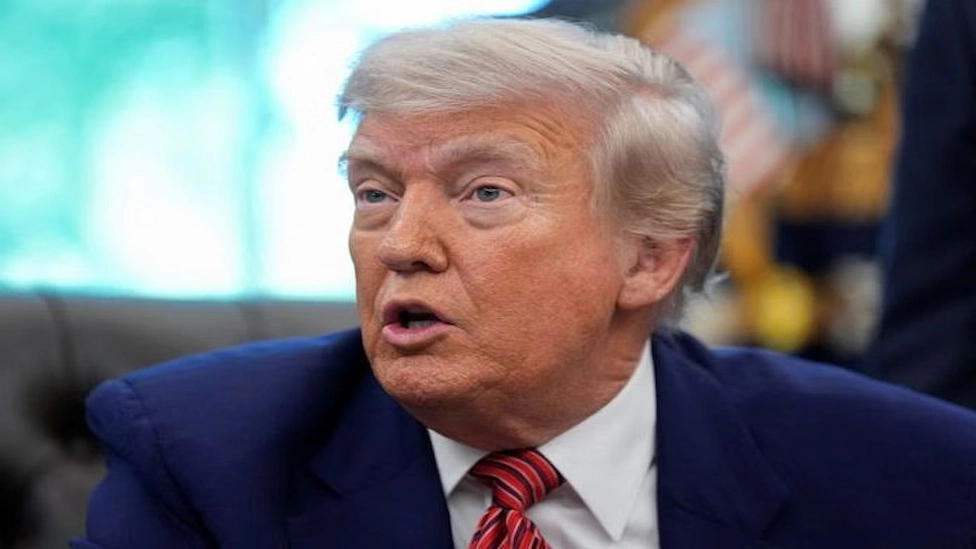Trump Travel Ban: President Donald Trump has expanded the Trump travel ban to include 12 countries. The new restrictions start on June 9, 2025. Officials and citizens from affected nations expressed shock. The ban aims to prevent “foreign terrorists” from entering the U.S.
This move echoes Trump’s 2017 travel restrictions, which Biden later repealed. Countries like Afghanistan, Iran, and Somalia face full bans. Others, including Cuba and Venezuela, have partial limits. Critics argue the policy is unfair and ineffective.
Also Read | Trump Travel Ban 2025: US Restricts Entry from 12 Countries, Adds Visa Limits
Trump Travel Ban: Insights
- The Trump travel ban now covers 12 countries, up from seven in 2017.
- Visas issued before June 9 remain valid, but new applications are limited.
- Over 160,000 visas were issued to affected nations in 2023.
- Legal challenges are expected, but they may be difficult due to exemptions.
- Some countries, like Chad, retaliated by restricting U.S. citizens.
Background
In 2017, Trump banned travelers from seven Muslim-majority countries. Courts revised the policy before the Supreme Court upheld it. Biden ended the ban in 2021, calling it discriminatory. The new Trump travel ban is broader. It includes non-Muslim nations like Haiti and Myanmar. The administration claims the restrictions improve security. Critics say they harm families and allies.
Main Event
Trump signed the order on Wednesday. It bars citizens from 12 countries, and seven others face partial bans. The White House cited terrorism risks and poor visa security. However, Egypt, where a recent attack occurred, was excluded. Trump said the ban “can’t come soon enough.”
Afghans who aided the U.S. fear being sent back to Taliban threats. Afghan activist Fatima said her hopes were “turned to ashes.” Chad’s president condemned the ban, calling it an insult. He stopped visas for Americans in response.
The policy allows exemptions. Dual nationals, permanent residents, and athletes can still enter. Over 160,000 visas were issued to affected nations last year. Legal experts say lawsuits may fail due to the ban’s exemptions.

Chad’s leader, President Mahamat Idriss Déby Itno, called the decision a blow to national pride and self-respect.
Photo Credits: CHESNOT (Getty Images).
Implications
Families may be separated, businesses could lose skilled workers, and U.S. allies, like Somalia, seek talks to resolve concerns. Critics argue the ban fuels discrimination, while supporters say it strengthens security. The policy may face court battles but could remain in place.
Conclusion
The Trump travel ban has sparked a global backlash. Legal fights loom, but exemptions may protect them. Future talks could modify the restrictions. For now, thousands face uncertainty. The debate over security vs. fairness continues.



